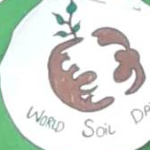About
Shujaul Mulk Khan Associate Professor of Ecology & Plant Sciences at Quaid-i-Azam University Islamabad, Member Pakistan Academy of Sciences, Visiting Faculty at UNISG, Editorial Boards member for numbers of journals, Supervised 8 PhDs & 65 MPhil in the field of Ethno-Ecology & Conservation, Got various distinctions i.e., topper of BSc-2001, MSc Botany-2004 MPhil-2008, & PhD- 2008-2012 University of Leicester (Nominee for the best thesis) Post Doctorate-2013 at UOL, UK. HEC best paper award 2017.
Award
Aug 2019
7th HEC Outstanding Research Awards 2017 - Best Research Paper Award
Award
Dec 2019
Membership Pakistan Academy of Science - PAS (Young member under the age of 40 years)
Award
Jul 2017
Excellent Scholar Award in the 19th International Botanical Congress - IBC by IBC and Botanical Society of China - CNKI
Award
Apr 2004
Merit Certificate on securing first position in MSc in Malakand Division
Award
Aug 2001
Quid-i-Azam Award on securing first position in BSc in all colleges of Swat
The Marble wastewater treatment through Bioremediation; an environmental friendly approach to modern world water issues
To identify potential of those indicator plants and fungal species who have the ability to degrade or accumulate heavy metals from marble industrial waste and bring resilience in ecosystem via introducing most fit of these species for water pollution eradication.
Natural and Technical sciences
1. Sharing & recommending publications.
2. Connecting with colleagues.
3. Seeking new collaborations.
Внедрение на нашей планете предложенного и разработанного автором источника чистой энергии-нано-энергетики Шестого экономического уклада -единственного в мире безвредного, возобновляемого, эффективного, воспроизводимого, устойчивого и дешевого источника энергии даёт возможность выжить человечеству в замкнутом пространстве тропосферы на планете Земля в условии чрезвычайного отравления атмосферы отходами производства промышленности-отходящими газами и запредельными количествами промышленных и бытовых отходов на поверхности планеты, сохранив при этом иммунитет населения, так как топливом для предложенной Кулаковым нано энергетики новой технологической парадигмы являются все отходы жизнедеятельности самого же человечества.
Biomonitoring of Industrial Pollution through Indicator Species
We focus on bio-monitoring and phytoremediation of the inorganic pollutants of industrial zones through natural vegetation.
Plant diversity, species distribution pattern and ecosystem services of the Shigar valley, Karakorum
Cryo-preservation of endangered species in Kp
Ecological studies of weed species of wheat with reference to edaphic factors in the District Malakand
The main goals & objectives of this project were;
1. To explore associated weeds’ species of wheat crop.
2. To classify weed species into various associations /communities using robust tools.
3. To know about the frequency of weeds and its total cover in agricultural fields.
4. To analyze the effects of various edaphic factor and farming practices on weed species and diversity.
Effect of natural gas emitted pollution on ecological, anatomical and biochemical characteristics of local vegetation growing around Nashpa Gas Plant in District Karak Pakistan
Quantification of impact of pollutants on structure, composition and abundance of plants
Conservation Ecological and studies of medicinal plants of Chitral Gol National Park (CGNP), Pakistan
Quantification of Medicinal Plants in Chitral Gol National Park
Comparative studies of Phyto-diversity within and around the Ayubia National Park with reference to species conservation
Role of National Parks in species conservation
Community Studies of Nannorrhops ritchiana (Mazri Plant) in Sheikh Baddin National Park with special focus on its Quantitative Attributes
Quantification of Mazri plant in Sheikh Badin Natiobal Park.
PARC-ALP funded project - Identification of potential ecological zone for introduction of suitable Grape (Vitis vinifera L.) Varieties; a step towards poverty alleviation and sustainable development in the FATA region of Pakistan
Our goal is introduction of suitable crop in suitable place at suitable time. To keep in mind the suitability of habitat, prevailing poverty in the region and potential of Viticulture (Grape Production) as highly priced cash crop, selected region from Federally Administered Tribal Areas (FATA) are proposed for this project. Our specific Project Objectives are:
1. To find out the suitable Grape varieties produced by public institutions as well as local grape growers (possessing adaptation to extreme climate and topography, fungal resistance, high crop yield and good quality) for propagation and extension in semi-arid subtropical and dry temperate regions of FATA Pakistan.
2. To introduce viticulture in FATA, Pakistan in general and its Dry Temperate Ecological Zone in particular and viticulture development in future.
3. To play a role in bringing FATA region to the mainstream development in the scenario of Vision 2025.
Ferns and their allies in Pakistan
Ferns (Pteridophytes) of Pakistan is one of the least studied coomponent of the Flora of the country. The systematics of Pakistani ferns species have not been documented fully with few exceptions based on floristic surveys and checklists. This project will stimulate research and interest to the areas which are less known among the plants researchers.
Eco-tourism impact on forest vegetation
Impacts of forests on sustainable Eco-tourism
Climate change monitoring in the Western Himalaya
Evaluate different environmental variables in relation to phytodiversity
Vegetation Composition and Distribution in Moist Temperate Forests of the Western Himalayas
To record species composition and sort out their distribution with special emphasis on the indicator species and their environmental drivers in Moist Temperate Forests of the Western Himalayas
Protection of Native Threatened Flora of the western Himalayas in the North western Pakistan; a cry of the day
To identify Threatened Plant species of Northern Pakistan and assess their conservation status quantitatively for future management in the Floristic Province - the Western Himalayas. It includes parts of Himalayas, Hindu Kush and Karakorum - the world's largest ranges.
Realted Researchers










